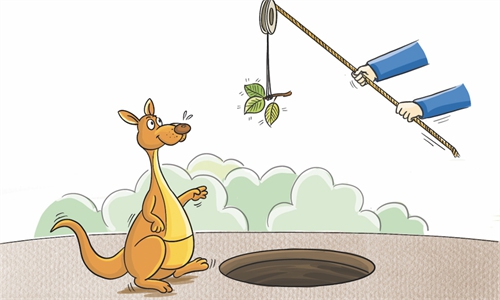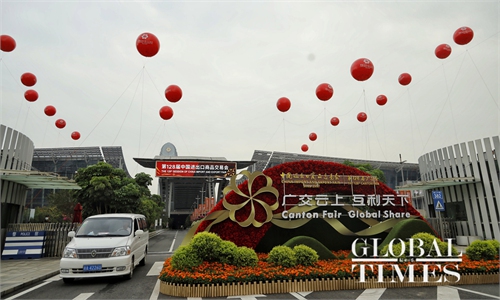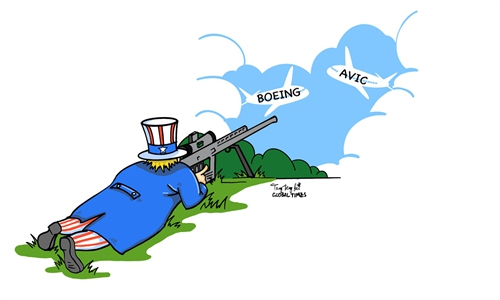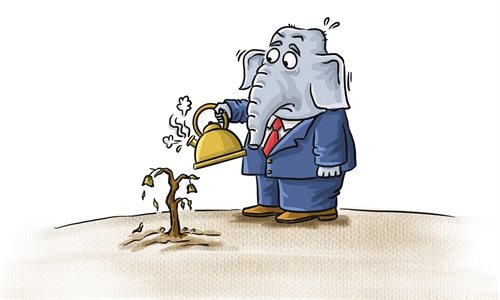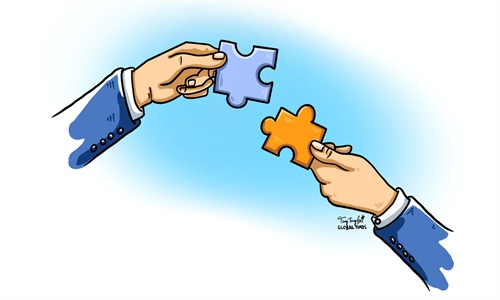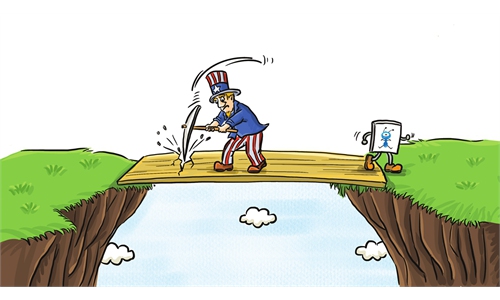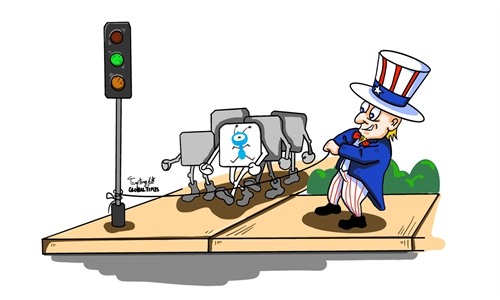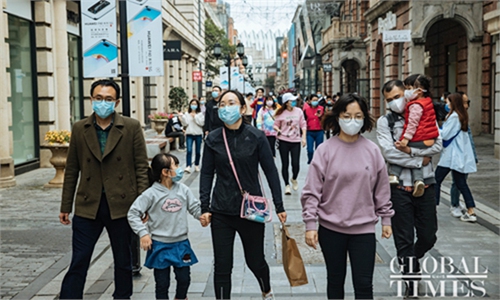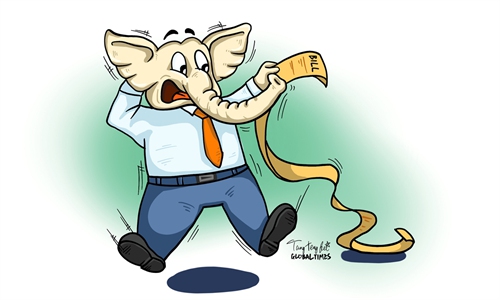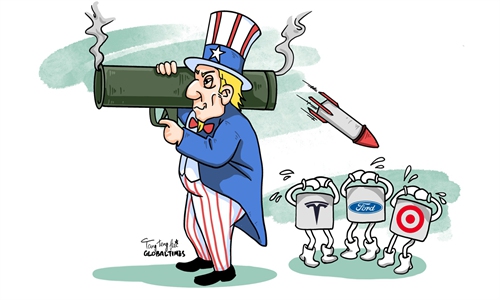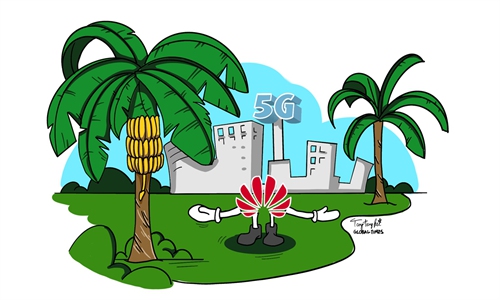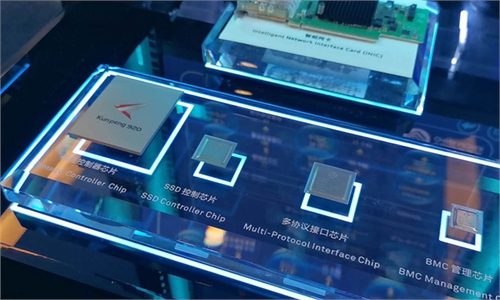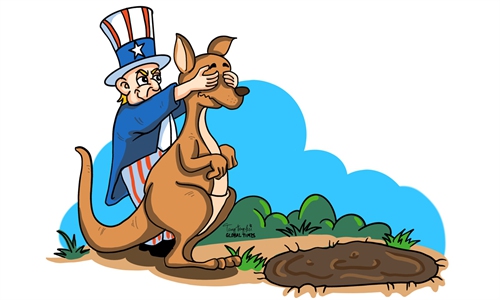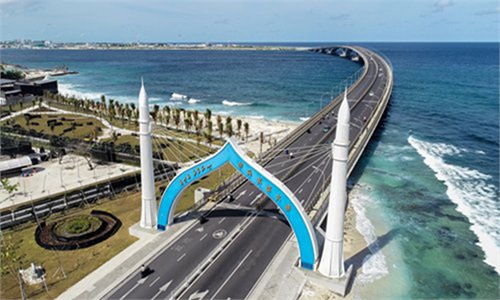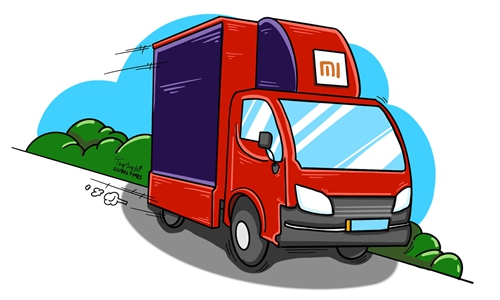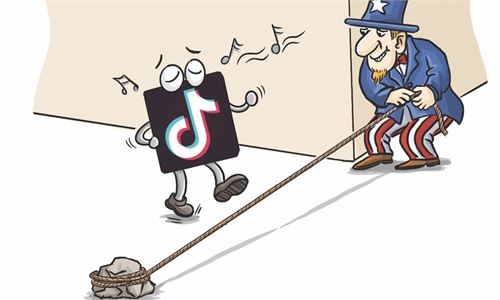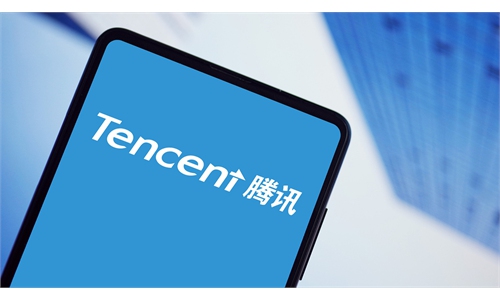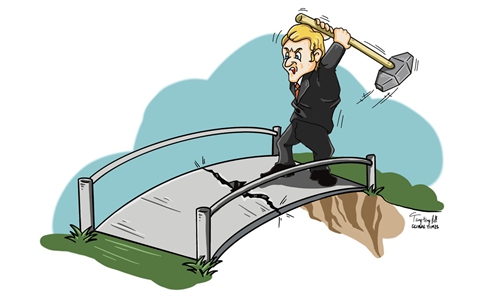'Trade war' hype will only worsen Australia's recession
After the hype surrounding a rumoured "coal import ban", Australian media outlets are now stirring up market concerns over another commodity - cotton. As a result of such speculation, some Western media outlets have even began pedaling a "shadow trade war" theory.
Online Canton Fair improvements show progress in trade promotion
The 128th China Import and Export Fair, or Canton Fair, opened online on Thursday. This is the second online edition of the world's largest comprehensive international trading event after the COVID-19 epidemic outbreak. Although it's still subject to many limitations compared with the mature model of the on-site exhibition, the second online edition has made many improvements over the first one.
US threat to AVIC dims outlook of own aviation sector
The US authority has been tirelessly making lists of Chinese companies to attack, for which the plane-maker Aviation Industry Corporation of China (AVIC) could be the latest entry to the US penalty list. However, the potential sanction on the Chinese company, this time, will likely drag the US aviation industry and the international aviation industrial chains into the morass.
Why India's narrowing trade deficit with China unsustainable?
The latest data shows that trade between China and India slumped in the first three quarters amid the COVID-19 pandemic, and may lead to a decrease in India's trade deficit with China this year. Though it would be in line with New Delhi's intentions in terms of statistics, to keep narrowing the trade deficit is not a realistic target for the nation and any non-economic approach to closing the gap would hurt India's interests.
Hong Kong should seize Shenzhen's new pilot reform opportunities
As Shenzhen ushered in new pilot reforms on the eve of its 40th anniversary celebration as a Special Economic Zone (SEZ), it is believed that promoting further cooperation with Hong Kong will remain a focus of the SEZ's long-term development, and the cooperation will reach deeper levels and wider fields.
Rubio's threat won't dampen IPO plans of Ant Group
China's leading fintech company Ant Group made headlines recently after initiating unprecedented dual initial public offerings (IPOs) in China. Hotly anticipated by global investors, the IPOs have also drawn ill-intended threats from US Republican senator Marco Rubio.
Trump's reelection bid poses more risks than financial war
The US President Donald Trump has been provoking confrontations both at home and overseas in order to gain four more years in the White House. With less than one month left before the November 3 election, Washington is unsurprisingly preparing its crackdown on Chinese firms again.
No loss of momentum for China's economic recovery
Following the COVID-19 outbreak, under strict prevention and control measures and with the support of strong economic assistance and stimulus policies, China's economy has achieved a V-shaped rebound.
India's 5G rollout is bound to be pricey if it shuns Huawei
India and Japan are reportedly to tie-up in development of 5G technology, with the assistance of other QUAD dialogue members - the US, Australia and Israel.
Trump bombarded by lawsuits as his tariffs hit businesses
With only one month left before the November 3 election, US President Donald Trump is facing a less encouraging opinion poll, as well as mounting lawsuits from American businesses against his administration over the tariffs on supply imports from China.
Huawei Thailand project signals start of US-free industry chain
As the world enters the 5G era, related cooperation and competition has been under spotlight across the world. With the US-led anti-China clique relentlessly trying to strangle the development of Chinese 5G frontrunner Huawei, the company recently launched a new innovation center in Thailand alongside its investment scale-down from Australia, portending the rise of the global industrial chains that are free from the US influence, and both the tech firms and the emerging markets will benefit from the new trend.
US' extreme pressure can't contain China's tech companies
Not hesitant to use national strength to suppress Chinese technology companies, the US has cut chip supply or enforced bans on Huawei, WeChat, TikTok, SMIC, etc. But can the US really achieve its target of suppressing the development of China's high-tech companies and digital economy through "excessive force?"
What's the US role in Australia's push to partially decouple with China?
Amid the spiraling downward China-Australia relations, a senior Australian diplomat recently weighted on the trend by claiming that the country has prepared to bear the economic costs of confronting China, its largest trading partner.
India's assistance to the Maldives shouldn't be tainted by geopolitics
India on Sunday announced a $250 million loan to the Maldives to boost its coronavirus-battered economy. The loan reportedly followed a $500 million pledge by New Delhi in August to help build infrastructure in the island nation, which took India's total pledged financial assistance in the Maldives to over $2 billion since Maldivian President Ibrahim Mohamed Solih was sworn into office in 2018.
Chinese firms overseas should be adaptive as second COVID-19 wave looms
As COVID-19 cases soar in India, the prospects of an effective economic recovery grow further out of reach. Chinese smartphone vendor Xiaomi recently launched its “MiStore-on-wheels” project, selling mobile phones and other products through vans.
Trump may keep squeezing China after robbing TikTok ahead of election
Forced to respond to the Trump administration's arbitrary crackdown, and after rounds of tense negotiations, Chinese social media platform TikTok has potentially avoided a ban in the US or the prospect of being entirely stripped of its US operations. And while the potential TikTok deal with Oracle and Walmart can be seen as progress, it does not mean tensions between China and the US have eased. Inversely, Trump may yet further antagonize China as his re-election date in November draws near.
Why must Chinese tech firms 'go out?'
Chinese tech companies "going out" approach is a part of their global expansion bids, in line with China's overall economic development strategy - the "dual circulation" plan. The trend started before the outbreak of the trade war and is expected to continue. It's also the inevitable development of Chinese tech enterprises.
Vystrcil's clarification overdue to dispel anxiety of Czech firms in China
As concerns over aftershocks from Vystrcil's Taiwan visit to business between China and Czech Republic linger, it's necessary for Vystrcil to make a timely clarification about the provocation to dispel such anxiety.
